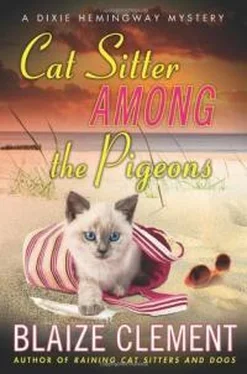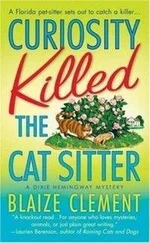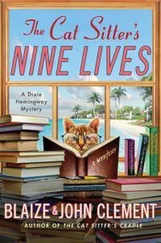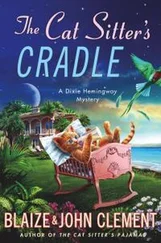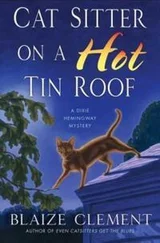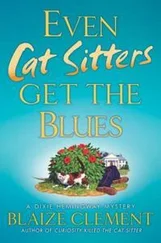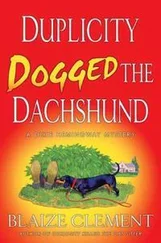“I see,” said Poirot. “Eh bien! I agree to what you ask.”
“I can assure you that that decision will please everyone.” Mr. Robinson's eyes just rested for a moment on Colonel Pikeaway's letter where it lay at Poirot's right hand.
“But just one little moment. I am human. I have curiosity. What are you going to do with these jewels?”
Mr. Robinson looked at him. Then his large yellow face creased into a smile. He leaned forward.
“I shall tell you.”
He told him.
Cat Among the Pigeons
II
Children were playing up and down the street. Their raucous cries filled the air. Mr. Robinson, alighting ponderously from his Rolls, was cannoned into by one of them.
Mr. Robinson put the child aside with a not unkindly hand and peered up at the number of the house.
No. 15. This was right. He pushed open the gate and went up the three steps to the front door. Neat white curtains at the windows, he noted, and a well polished brass knocker. An insignificant little house in an insignificant street in an insignificant part of London, but it was well kept. It had self-respect.
The door opened. A girl of about twenty-five, pleasant looking, with a kind of fair, chocolate-box prettiness, welcomed him with a smile.
“Mr. Robinson! Come in.”
She took him into the small sitting room. A television set, cretonnes of a Jacobean pattern, a cottage piano against the wall. She had on a dark skirt and a grey pullover.
“You'll have some tea! I've got the kettle on.”
“Thank you, but no. I never drink tea. And I can only stay a short time. I have only come to bring you what I wrote to you about.”
“From Ali?”
“Yes.”
“There isn't - there couldn't be - any hope? I mean - it's really true - that he was killed? There couldn't be any mistake?”
“I'm afraid there was no mistake,” said Mr. Robinson gently.
“No - no, I suppose not. Anyway, I never expected... When he went back there I didn't think really I'd ever see him again. I don't mean I thought he was going to be killed or that there would be a revolution. I just mean - well, you know - he'd have to carry on, do his stuff - what was expected of him. Marry one of his own people - all that.”
Mr. Robinson drew out a package and laid it down on the table.
“Open it, please.”
Her fingers fumbled a little as she tore the wrappings off and then unfolded the final covering...
She drew her breath in sharply.
Red, blue, green, white, all sparkling with fire, with life, turning the dim little room into Aladdin's cave.
Mr. Robinson watched her. He had seen so many women look at jewels.
She said at last in a breathless voice:
“Are they - they can't be - real?”
“They are real.”
“But they must be worth - they must be worth...”
Her imagination failed.
Mr. Robinson nodded.
“If you wish to dispose of them, you can probably get at least half a million pounds for them.”
“No - no, it's not possible.”
Suddenly she scooped them up in her hands and rewrapped them with shaking fingers.
“I'm scared,” she said. “They frighten me. What am I to do with them?”
The door burst open. A small boy rushed in.
“Mum, I got a smashing tank off Billy. He -”
He stopped, staring at Mr. Robinson.
An olive-skinned, dark-eyed boy.
His mother said:
“Go in the kitchen, Allen, your tea's all ready. Milk and biscuits and there's a bit of gingerbread.”
“Oh, good.” He departed noisily.
“You call him Allen?” said Mr. Robinson.
She flushed.
“It was the nearest name to Ali. I couldn't call him Ali - too difficult for him and the neighbours and all.”
She went on, her face clouding over again.
“What am I to do?”
“First, have you got your marriage certificate? I have to be sure you're the person you say you are.”
She stared a moment, then went over to a small desk. From one of the drawers she brought out an envelope, extracted a paper from it and brought it to him.
“Hm... yes... Registrar of Edmondstow... Ali Yusuf, student... Alice Calder, spinster. Yes, all in order.”
“Oh, it's legal all right - as far as it goes. And no one ever tumbled to who he was. There's so many of these foreign Moslem students, you see. We knew it didn't mean anything really. He was a Moslem and he could have more than one wife, and he knew he'd have to go back and do just that. We talked about it. But Allen was on the way, you see, and he said this would make it all right for him - we were married all right in this country and Allen would be legitimate. It was the best he could do for me. He really did love me, you know. He really did.”
“Yes,” said Mr. Robinson. “I am sure he did.”
He went on briskly,
“Now, supposing that you put yourself in my hands. I will see to the selling of these stones. And I will give you the address of a lawyer, a really good and reliable solicitor. He will advise you, I expect, to put most of the money in a trust fund. And there will be other things, education for your son, and a new way of life for you. You'll want social education and guidance. You're going to be a very rich woman and all the sharks and the confidence tricksters and the rest of them will be after you. Your life's not going to be easy except in the purely material sense. Rich people don't have an easy time in life, I can tell you - I've seen too many of them to have that illusion. But you've got character. I think you'll come through. And that boy of yours may be a happier man than his father ever was.”
He paused. “You agree?”
“Yes. Take them.” She pushed them toward him, then said suddenly: “That schoolgirl - the one who found them - I'd like her to have one of them - which - what colour do you think she'd like?”
Mr. Robinson reflected. “An emerald, I think - green for mystery. A good idea of yours. She will find that very thrilling.”
He rose to his feet.
“I shall charge you for my services, you know,” said Mr. Robinson. “And my charges are pretty high. But I shan't cheat you.”
She gave him a level glance.
“No, I don't think you will. And I need someone who knows about business, because I don't.”
“You seem a very sensible woman if I may say so. Now then, I'm to take these? You don't want to keep - just one - say?”
He watched her with curiosity, the sudden flicker of excitement, the hungry covetous eyes - and then the flicker died.
“No,” said Alice. “I won't keep - even one.” She flushed. “Oh, I daresay that seems daft to you - not to keep just one big ruby or an emerald - just as a keepsake. But you see, he and I - he was a Moslem but he let me read bits now and again out of the Bible. And we read that bit - about a woman whose price was above rubies. And so - I won't have any jewels. I'd rather not.”
“A most unusual woman,” said Mr. Robinson to himself as he walked down the path and into his waiting Rolls.
He repeated to himself.
“A most unusual woman.”
